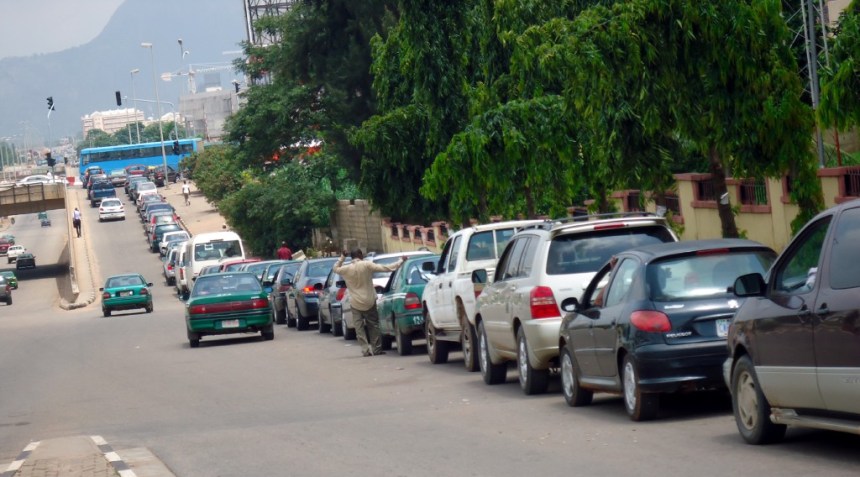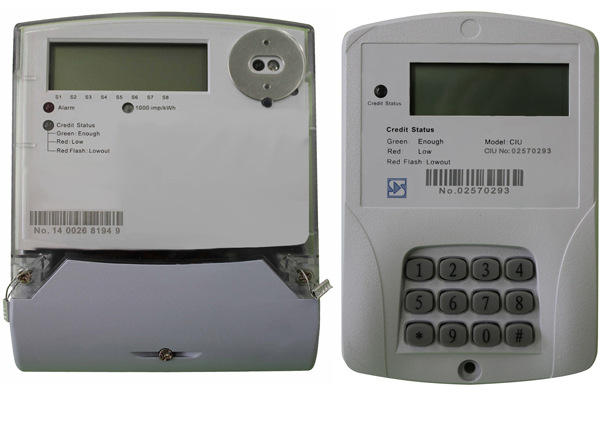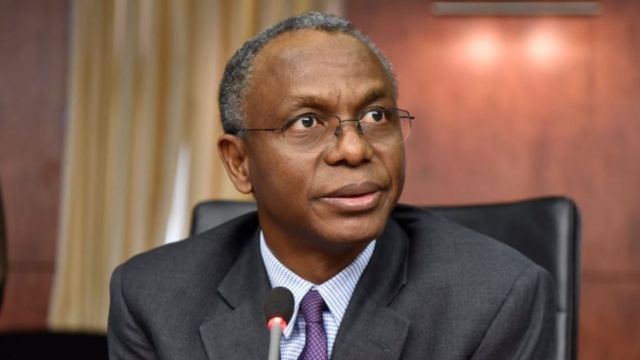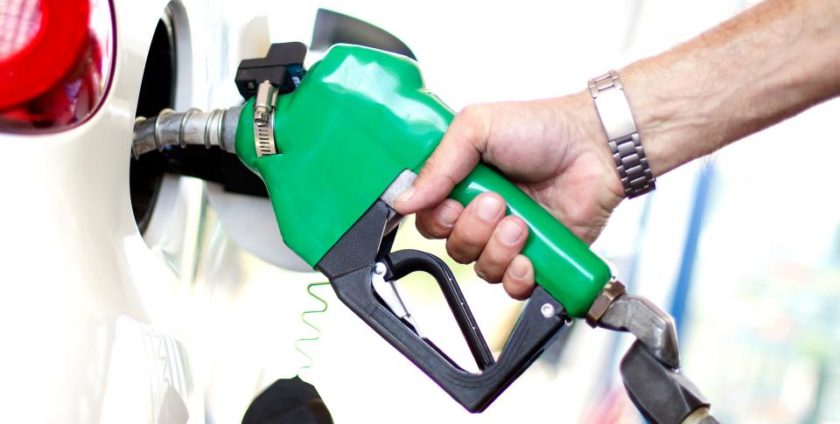Petrol Scarcity Worsens As More FCT, Lagos Stations Run Out Of Stock
Despite assurances by the Nigerian National Petroleum Corporation, NNPC that it has enough petrol in stock and that the ex-depot price will not increase in the month of March, more filling stations in Abuja and Lagos shut their gates with long queues at the few stations that were opened.
The queues which began appearing over the weekend as motorists prepared for petrol price increase this week, worsened on Monday with motorists waiting for hours before they could purchase the product.
Most filling stations monitored in the FCT had long queues with most selling at N167 although NNPC stations continued selling at N162 per litre.
NNPC had on Sunday night disclosed that there will be no increase in the pump price of petrol in the month of March.
The Corporation’s new stand is contrary to the expectation of a possible price hike in the month following rise in the price of crude oil in the international market and the warning by the Minister of State, Petroleum Resources, Chief Timipre Sylva that NNPC could not continue to absorb the extra cost in the pump price of petrol.
NNPC in a statement by its Group General Manager, Group Public Affairs Division, Dr. Kennie Obateru said it is not “contemplating any raise in the price of petrol in March in order not to jeopardize ongoing engagements with organized labour and other stakeholders on an acceptable framework that will not expose the ordinary Nigerian to any hardship”.
The statement read: “Contrary to speculations of imminent increase in the price of Premium Motor Spirit (petrol) in the country, Nigerian National Petroleum Corporation (NNPC) has ruled out any increment in the ex-depot price of petrol in March, 2021”.
Dr. Obateru also cautioned petroleum products, marketers, not to engage in arbitrary price increase or hoarding of petrol in order not to create artificial scarcity and unnecessary hardship for Nigerians.
The Corporation stated that it has enough stock of petrol to keep the nation well supplied for over 40 days and urged motorists to avoid panic buying.
It further called on relevant regulatory authorities to step up monitoring of the activities of marketers with a view to sanctioning those involved in products hoarding or arbitrary increase of pump price.
The queues are appearing at a time when the government warned that it could not continue to pay subsidy on petrol through the NNPC following rise in the price of crude oil in the international market.
Government attempt to raise the price has been resisted by labour unions who argued that it would worsen the economic hardship faced by the Nigerian masses.
Their position was however faulted a group of civil societies who urged the Federal Government to fully deregulate the downstream sector of the petroleum industry that allows markets forces to determine pump price of petrol and other petroleum products in the country.
The groups, under the aegis of Coalition of Nigerian Civil Society Organizations for Petroleum and Energy Security said for Nigeria to derive full benefits from its hydrocarbon reserves, the downstream sector needs to be urgently deregulated.
Speaking to journalists, the Convener of the group, Timothy Ademola said full deregulation would lead to liberalization which would in turn attract investments into the sector. Ademola however urged the government to put in place measures to cushion the impact on the masses by giving it “a human face”. He explained: “The deregulation of petroleum downstream is supposed to bring about some sort of liberalization of the sector which would make it possible for all petroleum products marketers to source their products from anywhere and sell at any price dictated by prevailing market forces. READ ALSO: Fuel: Stop panic buying, IPMAN advises “The competition arising from that would have helped to force pump prices down to the benefit of the citizens.
But the scarcity of foreign exchange has made it difficult for the marketers to import products, thereby making NNPC the sole importer in keeping with its statutory role as marketer of last resort”.
He noted that since that is no provision in the 2021 budget for subsidy, allowing NNPC to continue to bear the cost of subsidy would mean a return to fuel scarcity and queues across the country.





